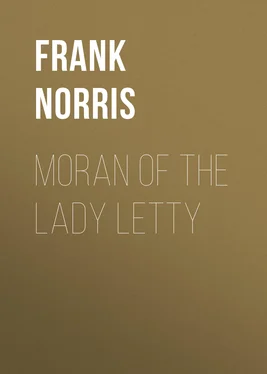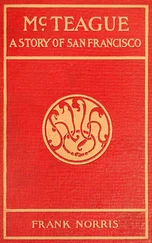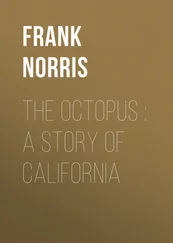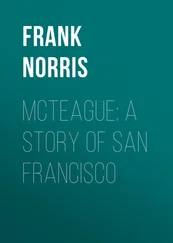Frank Norris - Moran of the Lady Letty
Здесь есть возможность читать онлайн «Frank Norris - Moran of the Lady Letty» — ознакомительный отрывок электронной книги совершенно бесплатно, а после прочтения отрывка купить полную версию. В некоторых случаях можно слушать аудио, скачать через торрент в формате fb2 и присутствует краткое содержание. Жанр: Прочие приключения, Прочие приключения, literature_19, foreign_antique, foreign_prose, на английском языке. Описание произведения, (предисловие) а так же отзывы посетителей доступны на портале библиотеки ЛибКат.
- Название:Moran of the Lady Letty
- Автор:
- Жанр:
- Год:неизвестен
- ISBN:нет данных
- Рейтинг книги:3 / 5. Голосов: 1
-
Избранное:Добавить в избранное
- Отзывы:
-
Ваша оценка:
- 60
- 1
- 2
- 3
- 4
- 5
Moran of the Lady Letty: краткое содержание, описание и аннотация
Предлагаем к чтению аннотацию, описание, краткое содержание или предисловие (зависит от того, что написал сам автор книги «Moran of the Lady Letty»). Если вы не нашли необходимую информацию о книге — напишите в комментариях, мы постараемся отыскать её.
Moran of the Lady Letty — читать онлайн ознакомительный отрывок
Ниже представлен текст книги, разбитый по страницам. Система сохранения места последней прочитанной страницы, позволяет с удобством читать онлайн бесплатно книгу «Moran of the Lady Letty», без необходимости каждый раз заново искать на чём Вы остановились. Поставьте закладку, и сможете в любой момент перейти на страницу, на которой закончили чтение.
Интервал:
Закладка:
On board, the two watches mingled forward, smoking opium and playing a game that looked like checkers. Three of them were washing down the decks with kaiar brooms. For the first time since he had come on board Wilbur heard the sound of their voices.
The evening was magnificent. Never to Wilbur’s eyes had the Pacific appeared so vast, so radiant, so divinely beautiful. A star or two burned slowly through that part of the sky where the pink began to fade into the blue. Charlie went forward and set the side lights—red on the port rigging, green on the starboard. As he passed Wilbur, who was leaning over the rail and watching the phosphorus flashing just under the surface, he said:
“Hey, you go talkee-talk one-piecey Boss, savvy Boss—chin-chin.”
Wilbur went aft and came up on the poop, where Kitchell stood at the wheel, smoking an inverted “Tarrier’s Delight.”
“Now, son,” began Kitchell, “I natch’ly love you so that I’m goin’ to do you a reel favor, do you twig? I’m goin’ to allow you to berth aft in the cabin, ‘long o’ me an’ Charlie, an’ beesides you can make free of my quarterdeck. Mebbee you ain’t used to the ways of sailormen just yet, but you can lay to it that those two are reel concessions, savvy? I ain’t a mush-head, like mee dear friend Jim. You ain’t no water-front swine, I can guess that with one hand tied beehind me. You’re a toff, that’s what you are, and your lines has been laid for toffs. I ain’t askin’ you no questions, but you got brains, an’ I figger on gettin’ more outa you by lettin’ you have y’r head a bit. But mind, now, you get gay once, sonny, or try to flimflam me, or forget that I’m the boss of the bathtub, an’ strike me blind, I’ll cut you open, an’ you can lay to that, son. Now, then, here’s the game: You work this boat ‘long with the coolies, an’ take my orders, an’ walk chalk, an’ I’ll teach you navigation, an’ make this cruise as easy as how-do-you-do. You don’t, an’ I’ll manhandle you till y’r bones come throo y’r hide.”
“I’ve no choice in the matter,” said Wilbur. “I’ve got to make the best of a bad situation.”
“I ree-marked as how you had brains,” muttered the Captain.
“But there’s one thing,” continued Wilbur; “if I’m to have my head a little, as you say, you’ll find we can get along better if you put me to rights about this whole business. Why was I brought aboard, why are there only Chinese along, where are we going, what are we going to do, and how long are we going to be gone?”
Kitchell spat over the side, and then sucked the nicotine from his mustache.
“Well,” he said, resuming his pipe, “it’s like this, son. This ship belongs to one of the Six Chinese Companies of Chinatown in Frisco. Charlie, here, is one of the shareholders in the business. We go down here twice a year off Cape Sain’ Lucas, Lower California, an’ fish for blue sharks, or white, if we kin ketch ‘em. We get the livers of these an’ try out the oil, an’ we bring back that same oil, an’ the Chinamen sell it all over San Francisco as simon-pure cod-liver oil, savvy? An’ it pays like a nitrate bed. I come in because it’s a Custom-house regulation that no coolie can take a boat out of Frisco.”
“And how do I come in?” asked Wilbur.
“Mee dear friend Jim put a knock-me-out drop into your Manhattan cocktail. It’s a capsule filled with a drug. You were shanghaied, son,” said the Captain, blandly.
About an hour later Wilbur turned in. Kitchell showed him his bunk with its “donkey’s breakfast” and single ill-smelling blanket. It was located under the companionway that led down into the cabin. Kitchell bunked on one side, Charlie on the other. A hacked deal table, covered with oilcloth and ironed to the floor, a swinging-lamp, two chairs, a rack of books, a chest or two, and a flaring picture cut from the advertisement of a ballet, was the room’s inventory in the matter of furniture and ornament.
Wilbur sat on the edge of his bunk before undressing, reviewing the extraordinary events of the day. In a moment he was aware of a movement in one of the other two bunks, and presently made out Charlie lying on his side and holding in the flame of an alcohol lamp a skewer on which some brown and sticky stuff boiled and sizzled. He transformed the stuff to the bowl of a huge pipe and drew on it noisily once or twice. In another moment he had sunk back in his bunk, nearly senseless, but with a long breath of an almost blissful contentment.
“Beast!” muttered Wilbur, with profound disgust.
He threw off his oilskin coat and felt in the pocket of his waistcoat (which he had retained when he had changed his clothes in the fo’c’sle) for his watch. He drew it out. It was just nine o’clock. All at once an idea occurred to him. He fumbled in another pocket of the waistcoat and brought out one of his calling-cards.
For a moment Wilbur remained motionless, seated on the bunk-ledge, smiling grimly, while his glance wandered now to the sordid cabin of the “Bertha Millner” and the opium-drugged coolie sprawled on the “donkey’s breakfast,” and now to the card in his hand on which a few hours ago he had written:
“First waltz—Jo.”
III. THE LADY LETTY
Another day passed, then two. Before Wilbur knew it he had settled himself to his new life, and woke one morning to the realization that he was positively enjoying himself. Daily the weather grew warmer. The fifth day out from San Francisco it was actually hot. The pitch grew soft in the “Bertha Millner’s” deck seams, the masts sweated resin. The Chinamen went about the decks wearing but their jeans and blouses. Kitchell had long since abandoned his coat and vest. Wilbur’s oilskins became intolerable, and he was at last constrained to trade his pocket-knife to Charlie for a suit of jeans and wicker sandals, such as the coolies wore—and odd enough he looked in them.
The Captain instructed him in steering, and even promised to show him the use of the sextant and how to take an observation in the fake short and easy coasting style of navigation. Furthermore, he showed him how to read the log and the manner of keeping the dead reckoning.
During most of his watches Wilbur was engaged in painting the inside of the cabin, door panels, lintels, and the few scattered moldings; and toward the middle of the first week out, when the “Bertha Millner” was in the latitude of Point Conception, he and three Chinamen, under Kitchell’s directions, ratlined down the forerigging and affixed the crow’s nest upon the for’mast. The next morning, during Charlie’s watch on deck, a Chinaman was sent up into the crow’s nest, and from that time on there was always a lookout maintained from the masthead.
More than once Wilbur looked around him at the empty coruscating indigo of the ocean floor, wondering at the necessity of the lookout, and finally expressed his curiosity to Kitchell. The Captain had now taken not a little to Wilbur; at first for the sake of a white man’s company, and afterward because he began to place a certain vague reliance upon Wilbur’s judgment. Kitchell had reemarked as how he had brains.
“Well, you see, son,” Kitchell had explained to Wilbur, “os-tensiblee we are after shark-liver oil—and so we are; but also we are on any lay that turns up; ready for any game, from wrecking to barratry. Strike me, if I haven’t thought of scuttling the dough-dish for her insoorance. There’s regular trade, son, to be done in ships, and then there’s pickin’s an’ pickin’s an’ pickin’s. Lord, the ocean’s rich with pickin’s. Do you know there’s millions made out of the day-bree and refuse of a big city? How about an ocean’s day-bree, just chew on that notion a turn; an’ as fur a lookout, lemmee tell you, son, cast your eye out yon,” and he swept the sea with a forearm; “nothin’, hey, so it looks, but lemmee tell you, son, there ain’t no manner of place on the ball of dirt where you’re likely to run up afoul of so many things—unexpected things—as at sea. When you’re clear o’ land lay to this here pree-cep’, ‘A million to one on the unexpected.’”
Читать дальшеИнтервал:
Закладка:
Похожие книги на «Moran of the Lady Letty»
Представляем Вашему вниманию похожие книги на «Moran of the Lady Letty» списком для выбора. Мы отобрали схожую по названию и смыслу литературу в надежде предоставить читателям больше вариантов отыскать новые, интересные, ещё непрочитанные произведения.
Обсуждение, отзывы о книге «Moran of the Lady Letty» и просто собственные мнения читателей. Оставьте ваши комментарии, напишите, что Вы думаете о произведении, его смысле или главных героях. Укажите что конкретно понравилось, а что нет, и почему Вы так считаете.












